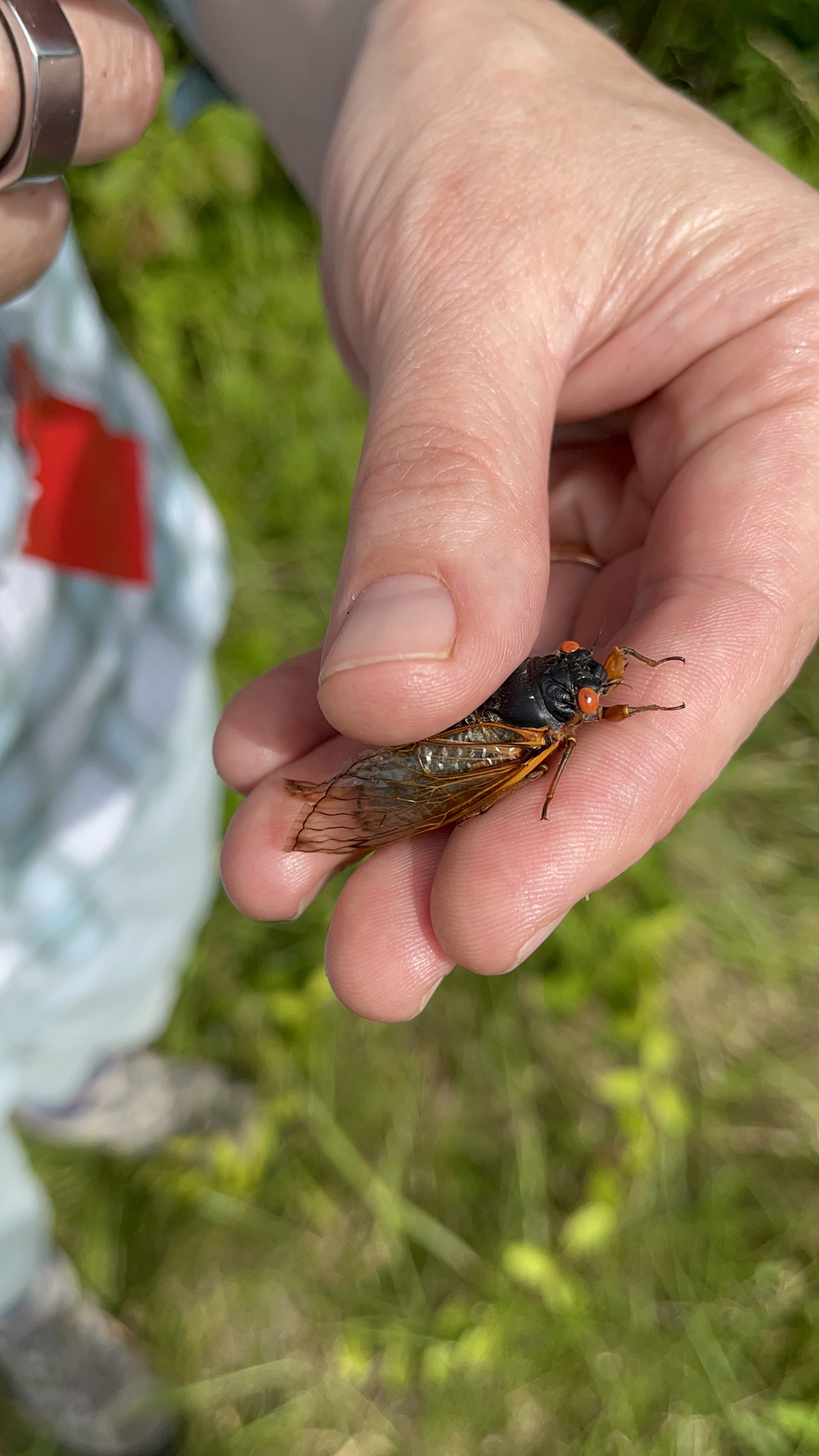St. Louis – Shhhhoo. Wee-oo. Chick, chick, chick. This is the sound of three different cicada species. For some people, these sounds are the song of summer. Others wish the insects would turn it down. The cacophony can be especially distressing for people on the autism spectrum who have hearing sensitivities.
Warren Rickly, 14, lives in suburban south St. Louis County, Missouri. Warren, who has autism, was recently waiting for his younger brother at the bus stop when the sounds of cicadas became unbearable to him.
“She said it feels like there’s always a train going by her,” her mother, Jamie Reed, said.
Warren said the noise bothers him.
Starting this spring, trillions of red-eyed insects made his way by crawling off the ground In the Midwest and SoutheastThis is part of a rare phenomenon of two offspring being born simultaneously – one offspring is born every 13 years, the other every 17 years.
Noisy insects can be stressful. People with autism may experience stress. sensitivity to Texture, shine and sound.
“I think the differences for individuals with autism are due to the level of intensity or discomfort of some of these sensory differences,” said Rachel Folmar, a developmental and behavioral pediatrician at Lurie Children’s Hospital of Chicago.
“It can get so extreme that it can cause physical discomfort,” he said.
When a large group of cicadas begin to sing, a chorus may occur Loud as a motorcycleResearchers at the University of Missouri-St. Louis crowdsourced high levels of cicada noise this year. 86 decibelsalmost as loud food blender,
Folmar said it can be stressful, not sweet.
To help children cope, she suggests giving them some information before they encounter a noisy situation. For cicadas, this might mean explaining what they are, that they don’t bite or sting, and that they’ll only be here for a short time.
“When something is inconvenient, not having power in that situation can be very scary for a lot of individuals, whether you’re on the spectrum or not,” Folmar said.
Jamie Reed’s family is using this and other strategies to help their son. Warren wears noise-canceling headphones, listens to music, and teaches himself about cicadas.
“I think researching it and looking into it kind of grounds him a little bit,” Reed said.
Fatima Husain, a professor and neuroscientist at the University of Illinois Urbana-Champaign, studies how the brain processes sound. She said people with tinnitus may also be bothered by cicada songs.
Tinnitus, ringing or other noise in the ears, is a person’s perception of sound without any external source.
“Some people say it makes a buzzing sound, like the wind blowing through the trees, and ironically, a lot of people say it sounds like a cicada,” Husain said.
According to Husain, for most people with tinnitus, the cicada’s song is harmless background noise, but for others the ringing can easily interfere with conversation or sleep. People with tinnitus are also more likely to have the disease. Anxiety or depressionLoud and persistent sounds, such as the song of a cicada, can make a person’s tinnitus worse, Husain said.
However, this is not always bad. The cicada’s song can also be soothing.

For some people, tinnitus gets worse in quiet environments. Husain said he’s seen reports this year from patients saying the cicada’s song is like soothing white noise.
“The sound is so loud that in some ways it’s suppressing their internal tinnitus,” Husain said.
No matter how loud the cicadas scream, There is no necessarily harm According to the Centers for Disease Control and Prevention, it can affect anyone’s hearing ability. Repeated exposure to loud noises causes hearing loss over time. Hussein said cicadas don’t make noises loud enough for long enough to cause permanent damage.
Everyday sources of noise pose a greater risk. Husain said constant exposure to noisy highways, airports, industrial sites or household appliances such as blenders and hair dryers can be a cause for concern. And they can have a negative impact on a person’s emotional well-being.
“If you’re exposed to a lot of loud noises during your school day or work day, that can make you more stressed; it can make you more angry about things,” he said.
Unlike highways or airports, the cicadas won’t be around for long. Most of the babies currently present will be gone in the next few weeks. That’s just in time for another noisy summer event: the 4th of July.
chorus-or-cacophony-cicada-song-hits-some-ears-harder-than-others-kff-health-news




